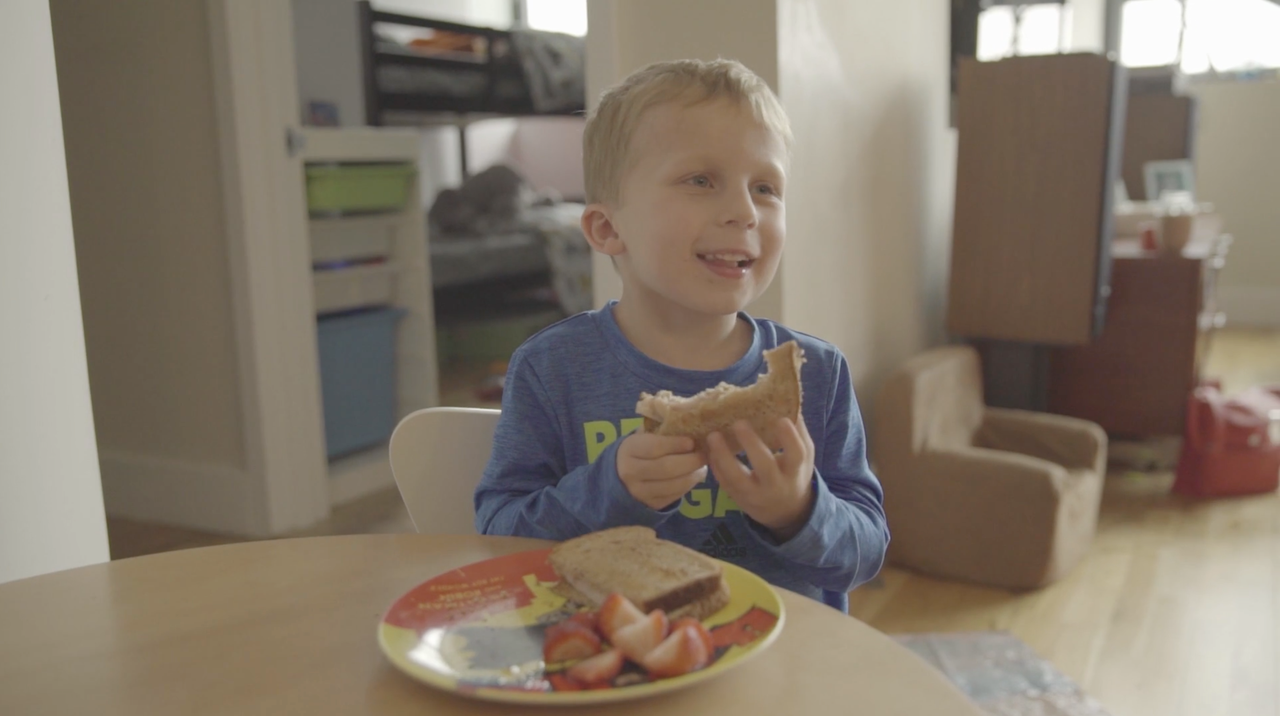These are the lazy days of summer. We're supposed to be watching our kids play on the beach, staying up late for game night, and telling old family stories, passing on our traditions and making new ones. If we are lucky, many of us are doing this during these last weeks before the start of the school year. But even if we are, these simple joys are competing with the very real strain of witnessing a world that feels like it is absent of kindness.
As parents, what do we do? How do we teach our kids to practice kindness in a world filled with so much anger and hatred? How do we nurture them and prepare them to spread good in our world as a counterbalance to all the bad? How do we do that without destroying these treasured, peaceful family moments that we want to preserve?
Moments like this are actually the foundation for teaching about and building kindness. The more time we spend with our children, the more spaces we create for them to ask and answer questions. We allow them to hear their own voices and to know that we are listening to them, respectfully. This gives our children the tools they need to develop the empathy and confidence that will help them create and engage in a better world.
Kindness Begins at Home
We teach kindness by demonstrating kindness. For parents, this means exercising a little extra patience, especially when we are busy and really don’t have the time to slow down as much as we would like.
Teaching kindness starts with respectful listening. Listen to your kids when they ask the hard questions. Also, remember to listen to your kids when they are telling their stories, whether they are about building Minecraft worlds or imagining shooting into the galaxy with a stuffed monkey.
When we listen to the little things, we make time and space for their voices, and we model for our children the values of respect and empathy. We also give them the confidence they need to speak up in defense of those who are treated unfairly, and on behalf of those who need and deserve kindness. Remember, kindness needs courage, and courage comes from confidence.
Celebrate Kindness
When you are spending time with your kids, enjoying the last days of summer, and during the busy season of school and sports and rehearsals, always take a moment to encourage, share and celebrate acts of kindness.
We have spoken about getting your kids to talk about their day, and the value of using targeted questions (to avoid the generic “How was your day?/It was fine.” conversation). As you go through those specific questions with your children at the end of the day, during the trip home from school, around the table, or at bedtime, ask for an example of when they showed kindness. Ask them to tell you about a time during the day when they saw someone else demonstrate kindness.
Then remember to ask the harder questions. Ask them if there was a time someone didn’t show kindness. Other questions should include: Did you encounter a situation where someone needed to be shown kindness and wasn’t? Sometimes, is it hard to be kind to others? Why? What can we do about that?
Share Your Own Experiences
If we expect our children to feel comfortable speaking with us about things that are difficult – and we can all agree, sometimes it is difficult to show kindness to others – we need to be honest with them.
Tell your children about your own struggles. Maybe you have a co-worker who frustrates you, maybe you are so tired that you feel you can’t find the energy to ask someone if they need help, or how you can do something to make their day easier. Tell your kids about this. Ask them if they have ideas for how you can practice kindness more often.
Keep the conversations going and let your children know that we all need each other. In spite of the anger and the hatred that we see in the world, we can do better, if we can come together.



